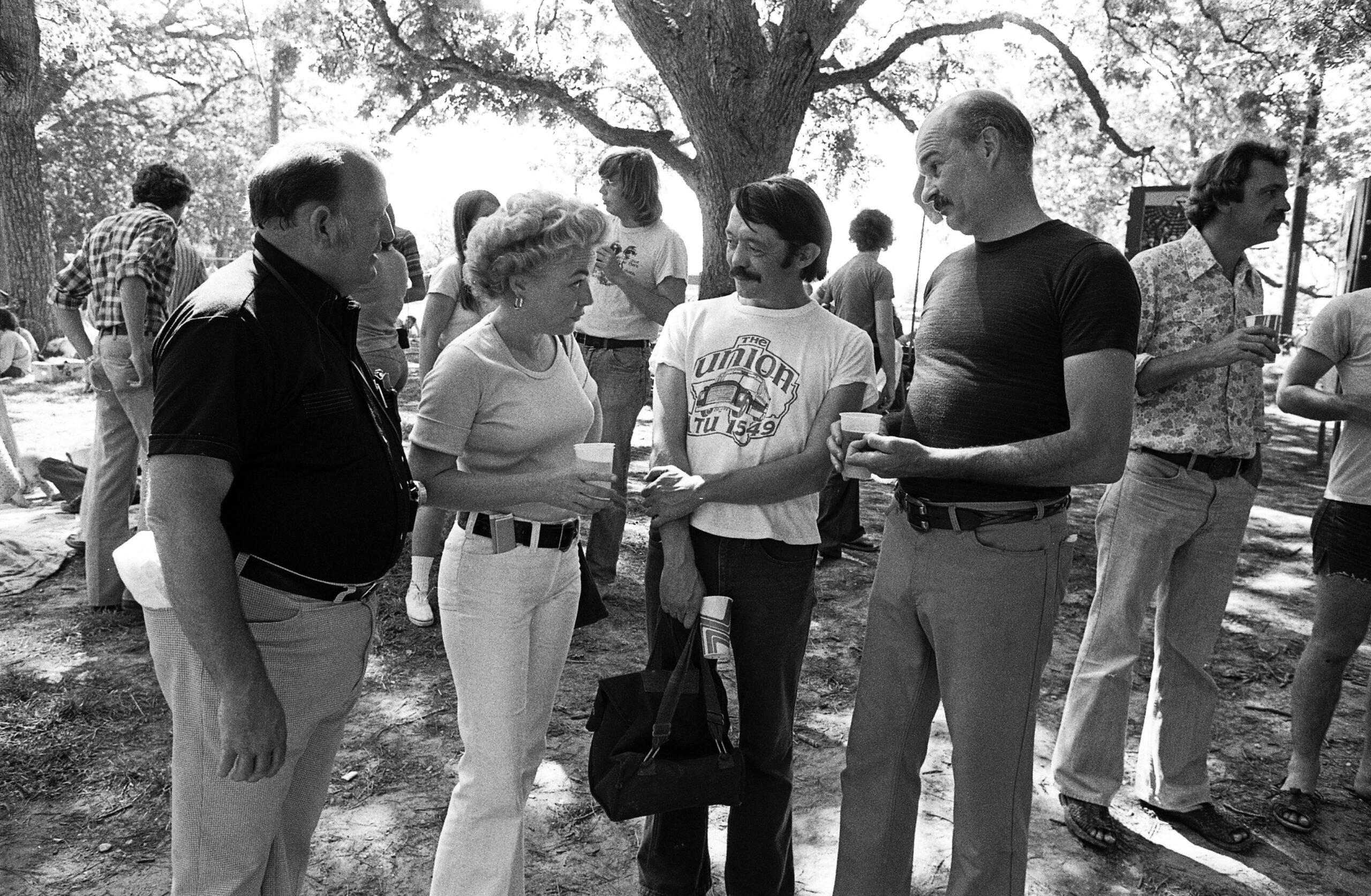Afterword
Nothing lasts, even for a lifer
Things had been going too good for too long. All that changed when security began questioning everyone in the craft program. Tobacco had been found in the craft shops and the warden wanted to know all the details of who, what, when, where, and how come!
“If you want to keep your craft card,” the captain said, “then you better give the warden what he wants. He ain’t playin’ no games!”
I tend to mind my own business. You stay healthy that way. But me telling the captain that I didn’t know anything wouldn’t wash and I hate being put in that kind of situation more than I do cold weather. He hated it, too, and after he couldn’t find any nicotine stains on my fingers he confiscated my wallet and watchband as “contraband.” The items were my handiwork and, until now, allowed by unit policy. A confiscation form had already been filled out. In the upper right corner it said: “Case Pending.” The sergeant who handed it to me had been shuffling papers, giving dirty looks, spitting in a wastebasket all this time, his lower lip impregnated with a heroic dip of Copenhagen.
I was called back to the captain’s office the next morning and given another chance to rat somebody out for smoking in the craft shop. I blew my golden opportunity again.
“Then you’re a part of the conspiracy!” the captain said.
“What conspiracy?” I innocently asked.
“The tobacco conspiracy!” he snarled. “‘Bye!”
Before I could leave, the sergeant showed me a small cardboard box containing leaking bottles of Fiebings leather dye, told me they’d been found in the “wrong locker” in the craft shop, and that I’d be given another case for being “out of compliance.” I knew then that my days of doing leather work in the craft shop were done. An alarming variety of institutional, unit, fire, safety, and compliance rules had arrived with the new warden and failure to comply with them all were grounds for the immediate loss of this particular privilege.

By the time I made it to the chow hall for Thanksgiving dinner, the kitchen workers had stolen and sold so much turkey that there wasn’t enough left to feed a straggler like me. After a 30-minute wait, a slim slice of something called “beef loaf” was substituted. I suppose “security” was too preoccupied investigating the tobacco conspiracy to adequately monitor the chow hall entrepreneurs.
In a few days, everybody with a craft card was called to the gym: All 182 of us. We were told to sit down and wait. The assistant warden walked in wearing his favorite striped polo shirt. He took a breath to begin his spiel just as the coach yelled “Hey! Y’all hold it down!” as if we’d ignore the number-two man. He took another breath but then the craft shop supervisor parroted the coach, in a voice two octaves higher. “Hold it down!”
“I’ve done ever-thing possible to let y’all keep the craft shops open, but I can’t do no more,” the assistant warden began. “Those of you who want to break the rules… to keep smokin’, to be makin’ wine… y’all are the ones who are puttin’ ever-body’s craft cards in jeopardy.”
We glanced around at those nearby, shame-faced expressions reining in smiles threatening a stampede into laughter.
“Y’all are gonna have to learn to po-lice yourselves,” he continued. “Y’all are gonna have to learn to po-lice each other! I can’t do no more for you. It’s all up to you.”
As he turned to leave, expressions of “Say What?” disbelief were traded while what he’d said sunk in. Before he could make it to the gym door, however, somebody yelled “When are you opening the craft shops up again, sir?”
Slowly he turned.
“The craft shops will re-open when we think y’all are ready to follow the rules!”
He was pulling on the door handle again when the same little, whining voice of abject supplication called out: “We’re ready now, sir!”
The crowd gave a disheartened groan, and somebody demanded to know “Who the fuck said that?”
Step by step, the assistant warden stalked back into the halogen illumination of the dank, dark gym, his mouth set in a thin line of petulance.
“Well. I was gonna open up the craft shops tonight, but I can tell that y’all ain’t ready,” he told us. “It might be a few more days, now–or it might be longer. I’ll just leave that up to the coach.”
When he headed for the door this time, nobody said a word. We’d identified the culprit who’d shouted out before, roundly cursed and threatened him. Everybody knew he’d slide by without being touched up. He was safe. Nobody wanted to lose his craft card.
As the crowd thinned, someone asked the coach what to do if people kept smoking in the craft shop.
“Well, if I was you,” he replied, “I’d take care of my bizness!” That could mean anything from walking to the desk and telling the guards sprawled there that so-and-so was smoking, to picking up a hammer and knocking the nicotine fiend in the head.
Is that what they want? A vigilante movement in prison?
If it is, then what about the guards who methodically bring in tobacco and sell it at 1,000-percent profit? What about the keepers of the keys who mule in the crack, the weed, the smack, and speed? What about those who look the other way whenever the perpetual prison predators play hide, seek, and find with their prey? Do we “take care of business” then?
About a week later, 13 prisoners who’d failed to provide the administration with what they wanted to hear were each served with identical Level II offenses: Possession of Tobacco Products. The time, place, and date listed 9:00 a.m. at the B-1-1 Security Office, where the interviews had been held. How much we were charged with was as incongruous as it was unimpressive. The identical cases listed “1 pack of Bugler and 1 baggie of tobacco.” The interrogation, via tactics of intimidation and coercion, was as dismal as it was effective. We were now on a path not of our choosing, one that the administration apparently felt would send an unmistakable message to everyone else.
When we all went to disciplinary court the next day, a lieutenant acting as the charging officer was unable to say that anything was found in anyone’s personal possession, assigned cell, or work area. The original incident reports stated that tobacco had indeed been found in several of the craft shops, but that it had all been found in common areas that no particular individual had control over. We weren’t even assigned to the same craft shops; we were in three different locations. And yet, based upon the confidential information provided by reliable informants (to which the captain testified out of the presence of each prisoner charged), all were found guilty. It was a morning marathon of penitentiary justice. The officers involved kept their masks of determined authority firmly in place. As I waited my turn, the thought occurred that the word “supercilious” was coined for men like these.
Punishment was meted out in rubber-stamp fashion: Reduction of status, which for me meant a loss of 25 good-time credits per month for a year, or 300 days. A few days later we were all reclassified from minimum custody down to medium. We had been carpenters, painters, clerks, garment factory workers. We would now become field hands. In every other classification hearing I’ve ever seen, each of the three members asked questions, wanted input before their votes were cast. This time they acted as cogs in a well-oiled machine, revolving around the direction that the big wheel turned. The chairman was the assistant warden.
Within a couple of hours, life as we knew it–where we’d known it–had changed. All 13 of us were given housing reassignments, and placed on “Mis-Housing”–a kind of institutional limbo where the majority of time is emptied into idleness and despair. You are allowed to eat meals in the chow hall or go to the law library, perhaps catching a glimpse of new faces, passing acquaintances, bitter enemies, or old friends, and then you return to your cell to sit and wait and hope for a regular assignment. Each trip soon reminds you of the impermanence of prison, and your place in it, and that age-old maxim that tells you nothing lasts.
Texas prisoners have a two-step grievance procedure in which redress is sought for all infringements of justice and due process we might encounter, as well as solutions to the myriad institutional problems that can’t be resolved informally. Our keepers refer to the I-127 and I-128 forms as “ass-wipe.”
The new millennium was not yet a month old before all the grievances were returned. The convictions will stand, unless relief can be found in Federal court.
A major disciplinary conviction precludes Texas prisoners from any parole consideration for up to one calendar year. Five of us were up for parole–for me it was the eighth time. A major disciplinary conviction also prevents us from attending college. Seven of us were enrolled in classes–four were just one semester shy of a degree. Until a year passes without another major disciplinary case and we are again in minimum custody, the only thing we’ll be studying is the business end of an aggie (“aggie” is what we call the large-bladed hoes used in the fields here).
Now don’t get me wrong. We’re no angels–none of us. I can’t speak for the other men dragged into this particular “Obey or Else” vignette. I would never try. But what happened to us happens to thousands of others all the time, every day, over and over again. It happens because that’s just the way it goes. That’s just the way things are in places where lives are made meaningless, hope is mangled, and faith in anything or anyone is perceived as a weakness and a handicap.
I speak for myself and hope my refusal to cooperate with the authorities is understood. I’m an old lifer. All I have is more time, dim memories, and faded love. What it takes to do this time comes second nature to me. If I barter what remains of my integrity for some conditional privilege, then my God, I’d never be free.
Philip Brasfield has been writing about Texas prisons–from the inside out–for over two decades. He currently resides at the Hughes Unit, Gatesville.


